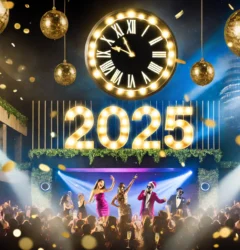26 Mar

The State of the Event Industry in 2021 (Part 2)
Four ongoing concerns that event profs should be anticipating and planning for as the year continues and the pandemic continues to affect the industry
In our first review of the event industry as it moves forward into 2021, we focused on some of the positive trends and reasons for optimism for event profs this year. However, event profs also know that the waters are still murky for the future. While vaccinations continue, and event planners cautiously begin to book dates and venues, some legitimate concerns remain before the event industry can fully recover to pre-COVID levels.
From the changing nature of business travel to structural changes to a slew of different industries, it’s impossible to know all of the new challenges for the event industry going forward. However, here are four more predictions and areas of concern for event profs to keep tabs on as 2021 progresses.
How will companies change their corporate events in response to the pandemic?
Look no further than the rising rates of vacancies in corporate real estate in urban areas. Just over a year ago, WeWork was a major name among tech unicorns. Now, as companies consider a permanent transition to remote work and flexible work weeks, downtown corporate real estate is just one industry that stands to be fundamentally shaken by the COVID-shifted business landscape.
Corporate events are no different. While many companies will certainly still host meetings and conventions to allow for networking and collaboration, the extent to which they return to booking events at pre-pandemic rates is uncertain. There are a few factors that may fundamentally change the nature of corporate events:
- Do companies begin to limit their event calendars to major meetings only, avoiding the types of casual business travel between regional offices that were normal before?
- As companies protect their resources that have been stretched by COVID, do events take a back seat to more fundamental business operations?
- Even as companies return to in-person events, will the budget for vendors, venues, and perks for conference attendees be restricted?
Event planners working within the corporate event space should reach out to previous clients as soon as possible to gauge interest and begin planning for shifts from these factors. Event profs need to collect information and adjust their own expectations for corporate levels on a regular basis. Hopefully, as vaccinations become more widespread, the picture on corporate events will become more clear sooner than later.
Liability will become an even greater concern for event profs
While event insurance is nothing new, the coronavirus has certainly changed the nature of liability for event hosts. From screening guests for symptoms or vaccinations, to rising costs of coverage from insurance providers, event profs should work with their insurance partners to understand changes that will be made to previously normal policies that were offered in the past.
For event venues and vendors, it may be worth sitting down with your management team to answer some key questions:
- Does your existing liability process take into account the new wrinkles from the COVID-19 pandemic? Do changes need to be made to ensure the safety and protection of your business from potential civil suits?
- Are clients willing to shoulder more of the responsibility for event safety?
- How will your normal pricing structures be changed by the expected increase in insurance coverage costs?
- Do some of your fundamental business practices need to be changed to give you greater control over potential gaps in coverage, to avoid unexpected problems when in-person events do return in force?
Can your event business add a virtual component?
Certain event profs, such as caterers or event decorators, may scoff at this question. But savvy event operators should know by now that, even if life returns to normal in just a few months, the virtual event is here to stay. So it’s essential for event profs to begin identifying ways to innovate and expand traditional brick-and-mortar businesses into the virtual space, by any means necessary. For example:
- Can venues add multimedia or “hybrid” packages to their traditional venue rental offerings? Perhaps it’s enhanced WiFi if some attendees will be virtual, the ability to stagger attendance, or other elements that can make a venue attractive even if some or most attendees will be remote.
- Can caterers or decorators offer delivery or “in-home” options to deliver a slice of the normal in-person experience to attendees, even if they are staying home or remote?
- What tech platforms are worth partnering with at an enterprise level to find white-label solutions for conferencing software and other meeting platforms that can still represent your traditional event brand?
Will the event industry contract as some traditional events shift permanently to virtual formats?
Until early 2020, the multi-billion dollar global event industry had space for plenty of startups and entrepreneurs. However, many of those businesses were centered on the traditional in-person event model. As virtual events look to persist in a major way for at least the next year (and probably much further into the future), is there still space for all of the operators who have been riding out the past year waiting for a return to normal?
This trend is one that probably won’t be answered definitively for years, let alone in 2021. But there are a few factors that will probably define whether the event industry reformation is a minor one, or one that fundamentally alters the number of players in the event space:
- Will smaller vendors be able to compete with established players in different market verticals who may have the resources to weather a sustained pandemic (in the unfortunate event that variants continue to mutate and spread)?
- Will clients still be willing to experiment with different vendors, or will they be more likely to rely on names who had proven themselves both before and during the pandemic?
- Will the event industry recovery be to pre-pandemic levels, or will the market itself shrink thanks to newfound hesitations toward travel and shrinking corporate budgets?
Obviously, event profs all hope for a renaissance once herd immunity has been achieved or vaccinations have become suitably widespread. But, there’s no better time than now to start planning for these different eventualities.









